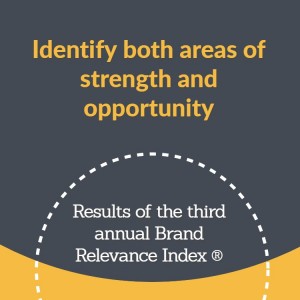 Apple, Google and Android are Most Relevant Brands to UK Consumers According to the New Prophet Brand Relevance Index®
Apple, Google and Android are Most Relevant Brands to UK Consumers According to the New Prophet Brand Relevance Index®
Global consultancy Prophet today announced the results of the third annual , a ranking of the most relevant brands in consumers’ lives today.
Apple and Google maintained their standings as the top two most relevant brands in the UK for the second year. New entrants in the top ten: Android, Dyson and Lush, squeezed out John Lewis, Disney and WhatsApp.
The complete results across regions can be found .
The world of marketing has changed. Has the CMO? … [New White Paper] https://t.co/Y7HsZXisPT pic.twitter.com/dDV5Sbhdf6
— Will Corry (@slievemore) October 16, 2017
Who are the most relentlessly relevant #brands in the UK? Find out in @ProphetBrand‘s #ProphetBRI: https://t.co/jufq6JQ720 pic.twitter.com/xmw8COsW5q
— Prophet (@ProphetBrand) October 18, 2017
The top ten most relevant brands are:
- Apple
- Android
- Lego
- Spotify
- Netflix
- Dyson
- Lush
- PlayStation
- 10. Amazon
The dominance of technology-led brands in the top ten proves that the most compelling brand experiences happen on demand, across devices and channels – not in one space or during one interaction.
 “Today’s always-on consumers need always-on brands to keep them connected,” said Ian Kirk, Partner at Prophet and co-author of the Brand Relevance Index®. “With multiple devices, consumers now expect brands to be proactive, responsive and relevant to their needs.”
“Today’s always-on consumers need always-on brands to keep them connected,” said Ian Kirk, Partner at Prophet and co-author of the Brand Relevance Index®. “With multiple devices, consumers now expect brands to be proactive, responsive and relevant to their needs.”
In order to find out which brands are the most relevant to people’s lives, Prophet conducted a survey of 11,500 UK consumers about more than 240 brands across 27 industries measuring across four brand principles: customer obsession, ruthless pragmatism, pervasive innovation, and distinctive inspiration. This year’s results show once more how relentlessly relevant brands are pushing themselves to earn and re-earn customers’ loyalty.
They are defining – and redefining – what is possible in their categories and in our world,” said Kirk. “The BRI is a valuable tool for brand leaders to identify both areas of strength and opportunity to improve the relevance of their brands. It’s clear that in order to succeed and grow, brands must be relevant.”
